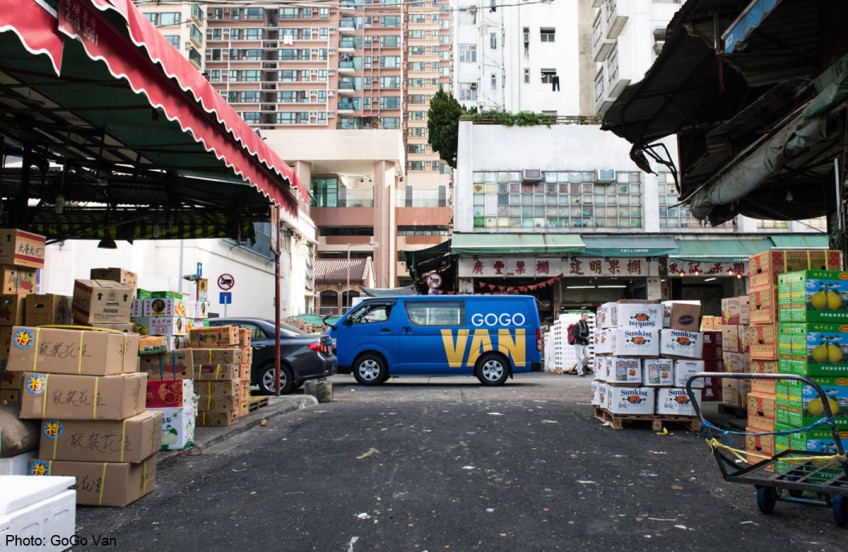Mobile apps make it easy to get things moving

More people are using mobile applications to hire delivery vans when they need help moving things, from furniture to food.
A pair of Hong Kong start-ups which brought their services to Singapore say demand is picking up. EasyVan has made more than 1,000 transactions since its launch on July 1, while GoGoVan, which started operating here last month, receives an average of between 100 and 140 transactions daily. They say their customers include small and medium-sized enterprises, and individuals who want to move bulky items.
The two apps work by linking customers with third-party drivers - similar to the way GrabTaxi bypasses traditional call centres to connect passengers with available taxi drivers regardless of which company they work for.
More than 2,200 drivers have signed up with GoGoVan since last month, while EasyVan has signed up more than 800. Unlike most delivery companies, which usually need advance bookings, the apps get things moving in a matter of hours.
Earlier this month, manager Ji Ming, 38, found a motorcyclist to make an urgent delivery for him through GoGoVan. Within an hour, the job was done. It cost him about $16.
He said: "I could even track through a GPS function the entire route of the driver."
But he said he would not use the app to move expensive items that cost thousands of dollars because of the risk of damaging or losing goods.
Neither app guarantees that this will not happen. However both companies have a screening process for drivers. Besides ensuring that they have valid licences and recording their personal details, EasyVan runs background checks to ensure that they have a clean driving record. GoGoVan also carries out vehicle inspections.
By signing up with EasyVan, full-time driver Abu Firash, 25, has been able to supplement his income. He earned about $40 from one job . "The jobs I get through the app can be a good sideline after work. If I am free and in the area where a delivery needs to be made, I can make some extra cash," he said.
Both GoGoVan and EasyVan hope to eventually charge drivers a commission of 5 per cent to 10 per cent for using their apps, which are currently free.
Customers are charged fees which start from $6 to $8 for document or parcel delivery, from $29 to $30 to book a van and from $38 to $40 to book a lorry. It is up to the customers to negotiate with the drivers if they require extra services.
Over the last few years, other delivery companies have also started incorporating mobile apps into their day-to-day operations.
Since last year, ixpress647 has been using the third-party mobile app Digital Waybill to allow its regular customers to make bookings and track deliveries. The company's owner, who wanted to be known only as Mr Aznan, 28, said: "There will always be competition, so we have to keep up. Using the app makes things more efficient and helps to lower business costs as we do not have to have so many staff tending our phone lines."
Four years ago, logistics company Courex designed its own mobile application to record and track deliveries. Last September, it improved the app to include a feature which connects the company to a network of around 2,000 drivers registered under it.
Mr Joe Choa, 38, Courex's managing director, said: "Crowdsourcing helps to solve the problem of the manpower crunch when there are sudden surges in demand for goods to be delivered."
GoGoVan and EasyVan saw rapid growth in Hong Kong. In about a year, GoGoVan built up a network of about 17,000 drivers, while EasyVan now has more than 8,000 drivers since its launch about eight months ago.
Mr Steven Lam, 28, chief executive of GoGoVan, said: "When I ask Singaporeans, 'How do you move a chair that cannot fit into a taxi?', most answer that they go to the classifieds or call friends who have lorries and vans. With our app, you do not have to make a lot of phone calls."
By the end of this year, GoGoVan hopes to expand its local network to more than 10,000 drivers and make an average of 1,000 to 2,000 transactions daily. EasyVan aims to get an average of 400 to 500 transactions daily by the end of this quarter.
cherylw@sph.com.sg

This article was first published on July 31, 2014.
Get a copy of The Straits Times or go to straitstimes.com for more stories.